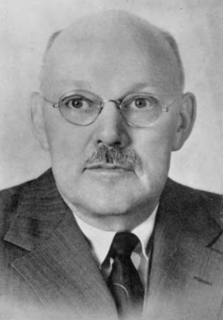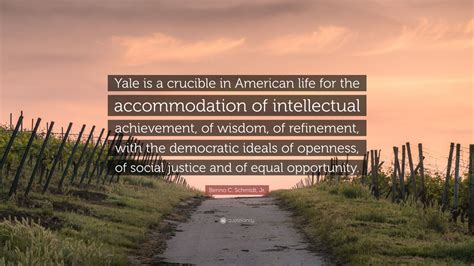A Quote by Samuel P. Huntington
Certainly here in the U.S., we've had fundamentalist movements that have taken very critical and hostile attitudes toward immigration and the assimilation of immigrants into our society and culture. So these tendencies are fairly universal. The problem is what if they get out of hand and become the dominant factor in a society, which can only lead to the oppression of minorities or even to war with neighboring societies with differing cultures. That's why it seems to me it's important to try to keep these tendencies toward extremism under control.
Quote Topics
Assimilation
Attitudes
Become
Certainly
Control
Critical
Culture
Cultures
Dominant
Even
Extremism
Factor
Fairly
Fundamentalist
Get
Had
Had Fun
Hand
Hostile
Immigrants
Immigration
Important
Keep
Lead
Me
Minorities
Movements
Only
Oppression
Our
Our Society
Out
Problem
Seems
Societies
Society
Society And Culture
Taken
Tendencies
Toward
Try
Universal
Very
War
Which
Why
Related Quotes
... the cooperative forces are biologically the more important and vital. The balance between the cooperative and altruistic tendencies and those which are disoperative and egoistic is relatively close. Under many conditions the cooperative forces lose, In the long run, however, the group centered, more altruistic drives are slightly stronger. ... human altruistic drives are as firmly based on an animal ancestry as is man himself. Our tendencies toward goodness... are as innate as our tendencies toward intelligence; we could do well with more of both.
The most serious problems of freedom of expression in our society today exist on our campuses. The assumption seems to be that the purpose of education is to induce correct opinion rather than to search for wisdom and to liberate the mind....Attitudes on campuses often presage tendencies in the larger society. If that is so with respect to freedom of expression, the erosion of principle we have seen throughout our society in recent years may be only the beginning.
My overall approach toward art is to remain as open as possible in front of the world, to always be curious, not to be afraid to experiment, and have a sense of self-criticism and a general criticism toward the surrounding. Also, trying to make a difference between serious research and pure gag! And making as few compromises as possible toward doing things that might not be accepted by the majority of society, even if this dominant society is the one which is ruling the art world. To keep this fundamental idea, even if it's a bit trivial: to have the desire to transform the world.
We`ve admitted 59 million immigrants to the United States between 1965 and 2015. Many of these arrivals have greatly enriched our country. So true. But we now have an obligation to them and to their children to control future immigration as we are following, if you think, previous immigration waves. We`ve had some big waves, and tremendously positive things have happened. To ensure assimilation, we want to ensure that it works. Assimilation, an important word, integration and upward mobility.
It is one of the saddest spectacles of our time to see a great democratic movement support a policy which must lead to the destruction of democracy and which meanwhile can benefit only a minority of the masses who support it. Yet it is this support from the Left of the tendencies toward monopoly which make them so irresistible and the prospects of the future so dark.
I do not feel that the West has really become less condescending toward foreign cultures than the Greeks and Romans were: it has only become more tolerant. Mind you, not toward Islam—only toward certain other Eastern cultures, which offer some sort of spiritual attraction to the spirit-hungry West and are, at the same time, too distant from the Western world-view to constitute any real challenge to its values.
The sin of worldliness is a preoccupation with the things of this temporal life. It's accepting and going along with the views and practices of society around us without discerning if they are biblical. I believe that the key to our tendencies toward worldliness lies primarily in the two words “going along”. We simply go along with the values and practices of society.
Because all the societies, all the nations, all the cultures, have taken it for granted that the individuals exist for them, not vice-versa. To me, just the opposite is the case: the society exists for the individual, the culture exists for the individual, the nation exists for the individual. Everything can be sacrificed, but the individual cannot be sacrificed for anything. Individuality is the very flowering of existence - nothing is higher than it. But no culture, no society, no civilization is ready to accept a simple truth.
If a poet has any obligation toward society, it is to write well. Being in the minority, he has no other choice. Failing this duty, he sinks into oblivion. Society, on the other hand, has no obligation toward the poet. A majority by definition, society thinks of itself as having other options than reading verses, no matter how well written. Its failure to do so results in its sinking to that level of locution at which society falls easy prey to a demagogue or a tyrant. This is society's own equivalent of oblivion.
We just kind of relied on written scouting reports through the eighties and even the early nineties. I've really been amazed by some of the data that's out there, especially with regards to tendencies of hitters, and certainly tendencies of pitchers as well. I would have loved to have gotten that data when I played.





































